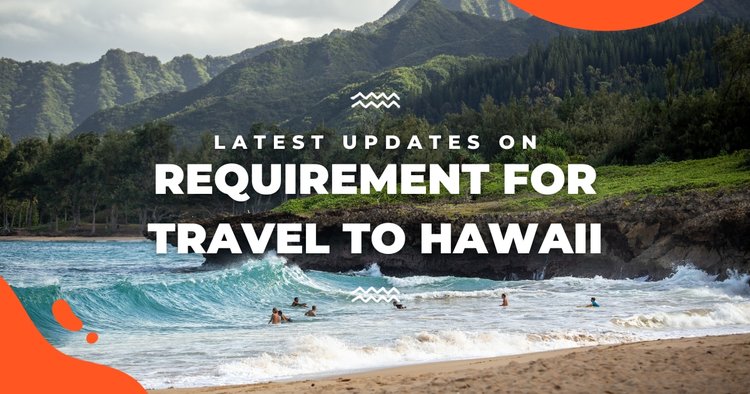
Traveling to Hawaii, a tropical paradise in the United States, requires some essential requirements.
Travel To Hawaii Requirements
Here are the key things you need to know and prepare for when traveling to Hawaii:
- Valid Passport: If you are traveling from outside the United States, you will need a valid passport. Ensure that your passport is not expired and has at least six months of validity remaining.
- Visa Requirements: Most travelers from countries participating in the Visa Waiver Program (VWP) can enter Hawaii with an approved Electronic System for Travel Authorization (ESTA). This allows for stays of up to 90 days for tourism or business purposes. However, if you are not eligible for the VWP, you will need to obtain a U.S. visa before traveling.
- COVID-19 Protocols: Due to the ongoing COVID-19 pandemic, additional requirements and protocols may be in place. Check the latest travel advisories, entry requirements, and health guidelines issued by the U.S. government and the State of Hawaii. This includes providing proof of a negative COVID-19 test or vaccination, completing health questionnaires, and adhering to local regulations.
- Flight Arrangements: Book your flights to one of the major airports in Hawaii, such as Honolulu International Airport (HNL) on Oahu, Kahului Airport (OGG) on Maui, or Kona International Airport (KOA) on the Big Island. Several major airlines offer direct flights to Hawaii from various international and domestic destinations.
- Accommodation: Research and book your accommodation in advance. Hawaii offers a wide range of options, including luxury resorts, hotels, vacation rentals, and budget-friendly options. Popular areas to stay include Waikiki in Honolulu, Lahaina in Maui, and Kailua-Kona on the Big Island.
- Transportation: While in Hawaii, you will need transportation to explore the islands. Renting a car is a popular option as it allows you to easily travel around at your own pace. Alternatively, you can use taxis, ride-sharing services, public buses, or organized tours depending on your preferences and itinerary.
- Travel Insurance: Consider obtaining travel insurance to protect yourself against any unforeseen circumstances, such as trip cancellations, medical emergencies, or lost baggage. Ensure that your insurance covers any specific activities you plan to engage in, such as water sports or hiking.
- Activities and Sightseeing: Hawaii is known for its stunning beaches, volcanoes, hiking trails, waterfalls, and cultural attractions. Research the activities and sights you would like to experience and plan your itinerary accordingly. Popular attractions include visiting Pearl Harbor, exploring Haleakala National Park, and snorkeling in Hanauma Bay.
- Currency: The official currency of Hawaii is the U.S. dollar. Make sure to have enough cash or international credit/debit cards to cover your expenses. ATMs are widely available throughout the islands.
- Climate and Packing: Hawaii has a tropical climate with warm temperatures year-round. Pack lightweight and breathable clothing, swimsuits, sunscreen, hats, sunglasses, and comfortable footwear. Don’t forget to pack any necessary medications, toiletries, and adapters for your electronic devices.
- Respect Local Customs and Environment: Hawaii has a rich cultural heritage, and it’s important to respect the local customs, traditions, and natural environment. Learn about Hawaiian culture, be mindful of local customs, and practice responsible tourism by preserving the natural beauty and fragile ecosystems.
Remember to stay updated with the latest travel advisories and guidelines from relevant authorities to ensure a smooth and safe journey. Enjoy your trip to beautiful Hawaii!





